Social media platforms are always jockeying for dominance, so it can be surprisingly difficult to find articles with the most up-to-date information on Google.
The good news is I’ve done the legwork for you.
As a writer and editor, I’ve used many of these platforms to promote my writing, find clients and connect with people in my industry.
Below, you’ll find the freshest data from sites like Statista to help you get the lowdown on the top social media sites around the world.
We’ll look at standout features for each social networking platform, go over who should (and should not) use them, and provide insights that’ll help you determine which ones are best for your business, brand, or blog.
Let’s dig in.
1. Facebook
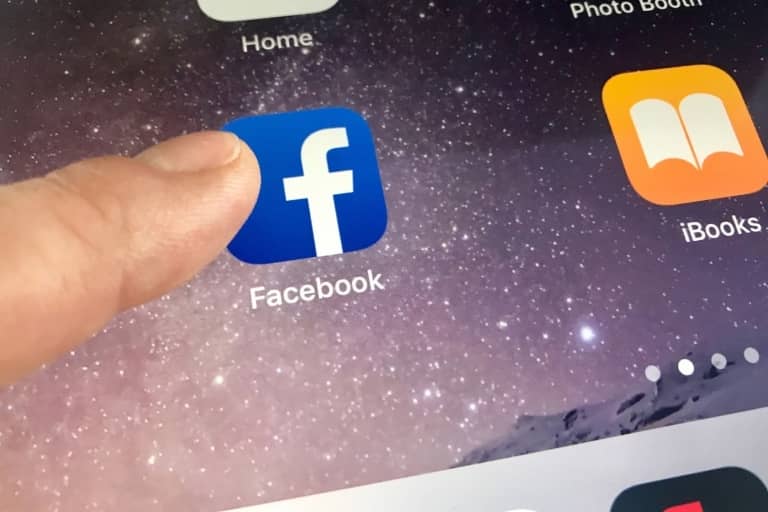
Facebook is the largest social media platform in the world.
But just because almost 90% of its daily active social media users live outside North America doesn’t mean this social platform isn’t popular in the U.S.
Seven in ten U.S. adults use Facebook, and more than half of Americans check multiple times daily, sharing posts composed of text, photos, videos, and GIFs that other Facebook users comment on, share, and react to.
Quick Snapshot
- Headquarters: Menlo Park, California, USA
- Founded: 2004
- Monthly Active Users: 2.9 Billion
Standout Features & Functionality
- Audience Insights gives small businesses the power to leverage Facebook’s massive pool of aggregated data to help them reach their ideal audience with Facebook ads.
- Facebook 360 allows businesses to upload panoramic-style photos from a smartphone, creating immersive, interactive experiences for their followers.
- Facebook Live gives influencers an interactive medium for connecting with their audience.
Who Should Use Facebook?
Just about every audience is on Facebook, and it is the most popular social media network for seniors — a rapidly growing demographic on the site.
Who Shouldn’t Use Facebook?
Although Facebook dominates social media usage, if you’re in an industry that elicits unhappy or angry feelings, then your message may not be well received on Facebook.
Final Word on Facebook
Facebook advertising’s massive reach and powerful social media marketing capabilities make it a no-brainer for most businesses (just make sure you set up a business page, if you haven’t already).
And if you’re a content creator (whether it’s a blog post, infographic, or an article for a client), Facebook is one of the best social media platforms to share content.
2. YouTube
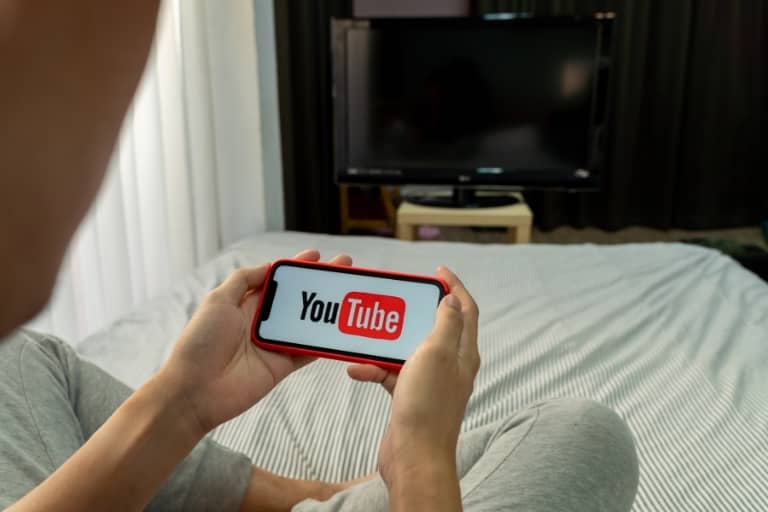
When it comes to social networking sites, YouTube dominates video content sharing.
This massive video-sharing platform lets users post, comment on, and upvote or downvote music videos, TV shows, vlogs, educational content, live streams, movie trailers, and more.
YouTube users can also subscribe to other users’ social media channels and add videos to playlists.
This popular social media platform functions as a massive search engine (2nd only to Google), making SEO an important consideration for content creators.
Quick Snapshot
- Headquarters: San Bruno, California, USA
- Founded: 2005
- Monthly Active Users: 2.49 Billion
Standout Features
- YouTube Cards visually enhance links to other videos and playlists, making your social media content more interactive. They can appear at any specified time during your video.
- YouTube Live allows you to stand out by creating an engaging experience with your audience.
- After reaching 1,000 followers, a social media user can post text, images, GIFs, live videos, and more within the Community tab to further connect with their audience.
Who Should Use YouTube?
Tons of businesses have leveraged this top social media site to reach potential customers successfully. Here are 50 content ideas to get any business started.
Who Shouldn’t Use YouTube?
An astounding 500+ hours of video is uploaded to YouTube every minute. If you’re not committed to producing high-quality social media content, you won’t gain traction.
Final Word on YouTube
Chances are your audience is regularly tuning in to this massively popular social networking website to be entertained, educated, and informed. Will they find you there?
3. WhatsApp

In a crowded messaging app market (QQ, Telegram, Snapchat, etc.) WhatsApp stands as the most popular, with more monthly active social media users than Facebook Messenger (both are owned by Facebook).
Users can send text and voice messages or make voice and video calls for free with this mobile social media app. However, unlike the app Viber, users cannot call non-app users’ numbers.
WhatsApp Business is a standalone app available on desktop, and many business owners use it as a handy customer service solution.
Quick Snapshot
- Headquarters: Mountain View, California, USA
- Founded: 2009
- Monthly Active Users: 2 Billion
Standout Features
- Free international text, voice, and video messaging (video chat with up to 4 people).
- WhatsApp Business provides messaging tools for connecting with customers, including automated greeting and away messages, the ability to reuse messages for quick replies, labels for organizing contacts and chats, catalogs to show off your products and services, and a profile page with your basic business info.
- Document sharing allows for easily sharing spreadsheets, slideshows, and other documents up to 100 MB (also free!).
Who Should Use WhatsApp?
Businesses that want to offer quickly accessible customer service, including local businesses offering delivery.
Who Shouldn’t Use WhatsApp?
If your customers aren’t likely to use the app, then it won’t work because both parties must have it to connect.
Final Word on WhatsApp
It’s easy to see why WhatsApp has become such a popular social networking app with small businesses. Check out this HubSpot article for WhatsApp marketing ideas.
4. Facebook Messenger

Messenger, originally Facebook Chat, is a standalone messaging app and platform.
No Facebook account is necessary to use this social networking site to communicate via text messages, voice, or video chat.
More than an instant messaging app, users can also share photos, videos, stickers, and other file formats.
Messenger was recently redesigned to be lightweight and fast — deprioritizing a number of features, including chatbots that had become integral to many businesses’ customer communication strategy.
Quick Snapshot
- Headquarters: Menlo Park, California, USA
- Founded: 2011
- Monthly Active Users: 980 Million
Standout Features
- US users can send and receive money through Messenger by connecting it to their debit card or PayPal account.
- Location sharing (remember Foursquare and its check-ins?) makes it easy for your friends or customers to find you.
- Messenger Rooms is a video chat feature similar to Zoom that allows up to 50 participants at a time.
- Business solutions, like purchase tracking, notifications, and connecting customers with your customer service representatives make it easy to serve your customers.
Who Should Use Facebook Messenger?
Businesses whose customers are already on Facebook (and probably on Messenger), that want to offer their customers an easy and convenient way to reach them.
Who Shouldn’t Use Facebook Messenger?
Those not able or willing to respond to customer inquiries within Messenger’s allotted 24-hour window (prevents spamming), may want to consider another solution.
Final Word on Facebook Messenger
For a time, chatbots were a big social media strategy on Messenger. Those days are over, with a shift toward user satisfaction. Respect your customers’ inbox.
5. WeChat
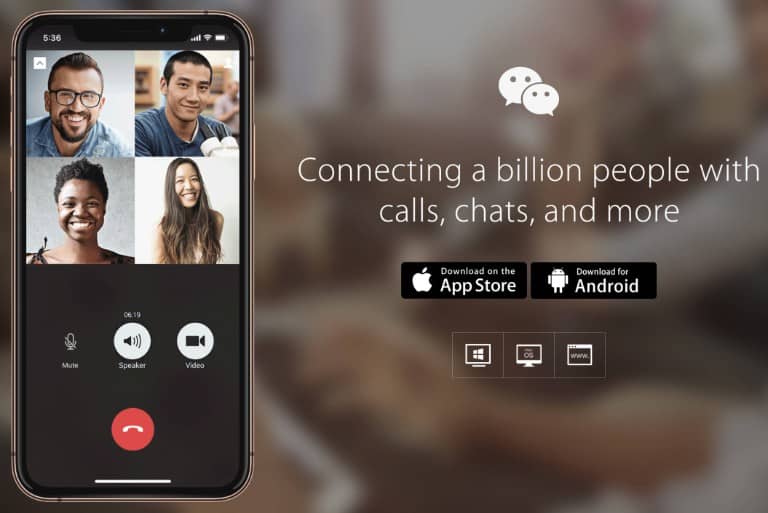
WeChat (Weixin) is one of the most popular social media sites to come out of China.
Owned by Tencent, the parent company of QQ and QZone, this app does a little bit of everything.
It’s a messaging, social media, and mobile payment app rolled into one, and users also play games, shop, and access government services through the social media platform.
Like other social media apps, users can also share photos, make video calls, and text.
Advertisers on WeChat benefit from Facebook-esque customer data collection.
Quick Snapshot
- Headquarters: Shenzhen, China
- Founded: 2011
- Monthly Active Users: 1.35 Billion
Standout Features
- WeChat Pay allows users to shop and make money transfers.
- Automated replies create a smooth customer service experience.
- A customer history chat log is available for easy reference when corresponding with clients.
- WeChat Shop platforms allow businesses to set up online stores that leverage features like WeChat Pay, phone number and address collection, retargeting, and customer service capabilities.
Who Should Use WeChat?
If your audience is in or from China — including tourists, students, and expats — then this all-in-one social media service is worth a look.
Who Shouldn’t Use WeChat?
Foreign businesses must go through a 3rd party agency to advertise on WeChat, which is a lot of hassle unless you’re serious about reaching Chinese audiences.
Final Word on WeChat
WeChat is a huge platform with tons of organic and paid marketing options for brands and businesses.
6. Instagram
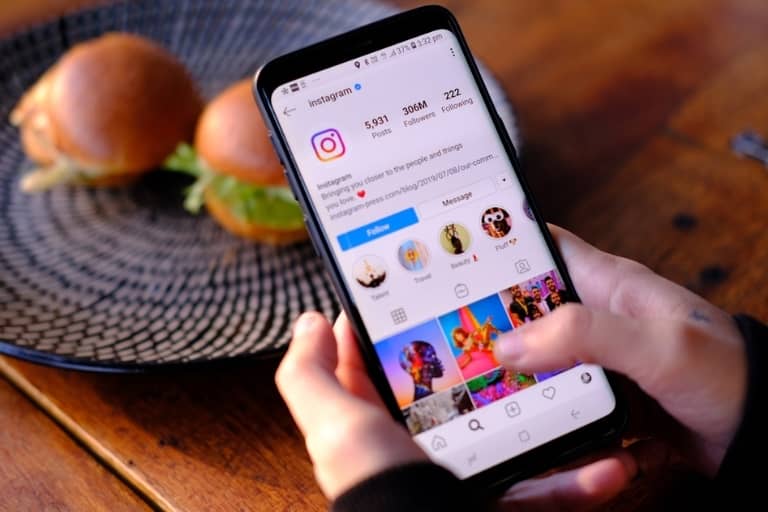
Instagram is a video and photo-sharing social platform where users upload photos and short videos, often adding filters and other effects before sharing them with family and friends.
It’s owned by Facebook, which provides robust marketing data for reaching your audience.
Well-suited to influencer marketing, it’s the perfect place to show off products and tell visually centered stories about your business. Whether that’s e-commerce or personal training, you’ll find that Instagram users are ready to buy.
Quick Snapshot
- Headquarters: Menlo Park, California, USA
- Founded: 2010
- Monthly Active Users: 2 Billion
Standout Features
- Shoppable Tags allows a social media user to click on products in images and go directly to a product page to make purchases.
- Instagram Stories and Instagram Reels is a short user-generated video with various added enhancements and effects that disappear after 24 hours.
- Instagram Live is a great way to engage your audience and interact with them in real-time.
- Able to display photos, videos, graphics and text, Instagram is great for multimedia content.
Who Should Use Instagram?
A variety of brands thrive on Instagram, especially those in travel, beauty, and fashion — the largest demographic is under 35, urban females with above-average income.
Who Shouldn’t Use Instagram?
If you’re not prepared to consistently post unique, high-quality images and videos, then you won’t capture much attention. (Thankfully, there are several great Instagram scheduling tools available to make consistent posting much easier.)
Final Word on Instagram
Instagram is growing every day. With increasingly sophisticated and powerful tools for social media marketers, it’s a great social site for growing your business.
7. TikTok
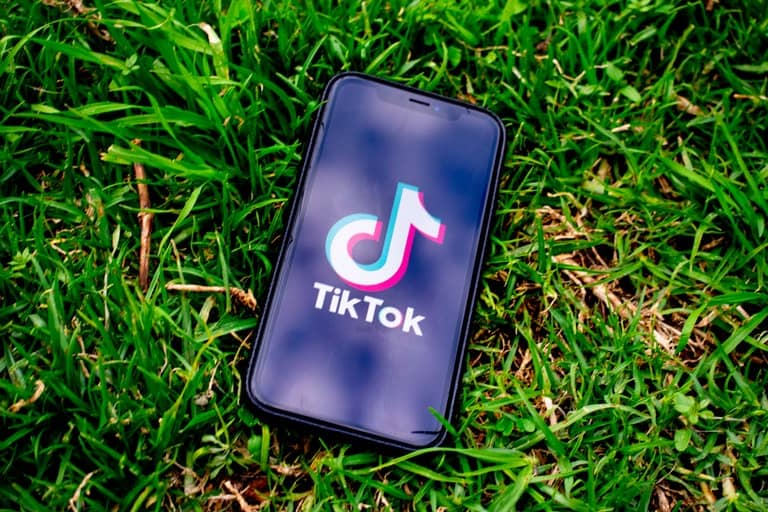
TikTok is a massively popular social network coming out of China that bills itself as the “leading destination for short-form mobile video.”
TikTok users create various types of short (up to 60 seconds) looping videos to share, including comedy, talent, lip-synching, dancing, stunts, and more.
Like other social networking sites, its algorithm will learn what you like and show you similar content over time.
Quick Snapshot
- Headquarters: Beijing, China
- Founded: 2016
- Monthly Active Users: 1 Billion
Standout Features
- In-app video editing allows users to customize background music, video effects, speed, filters, sounds, and more.
- With the React feature, users can film their reactions to videos, showing up in a small window alongside the original content.
- The Duet feature allows users to film themselves trying to sing the same song, perform the same dance, or do a parody as a joke alongside a piece of original content.
Who Should Use TikTok?
If your audience is young adults, and you can demonstrate a creative or visually appealing side to your brand, then TikTok is a must-have for your digital marketing playbook.
Who Shouldn’t Use TikTok?
If your audience is older professionals, or if you’re a B2B company, then this probably isn’t the right place for you.
Also, the United States potentially banning TikTok due to data concerns has been a popular topic since 2020, so if privacy is a chief concern of yours, keep this in mind.
Final Word on TikTok
TikTok is a fun space to show your brand’s human side. If your audience is on this platform, it’s a great place to cultivate brand awareness.
8. QQ
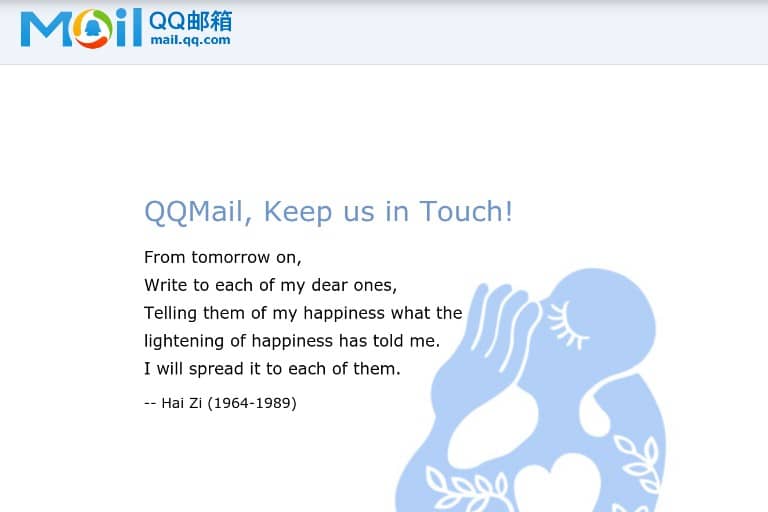
QQ is another Chinese instant messaging platform.
Users can participate in group chats and send texts and audio messages — comparable to Facebook Messenger.
Although it’s primarily a desktop app, a lightweight and less functional mobile app is available.
Quick Snapshot
- Headquarters: Shenzhen, China
- Founded: 1999
- Monthly Active Users: 553 Million
Standout Features
- A live translation feature for up to 50 languages makes it possible to connect internationally.
- QQ Coin is a virtual currency used to purchase items for the user’s avatar or blog. Coins are accepted by some vendors for real goods.
- Users can transfer files for free, with no limit on file size.
Who Should Use QQ?
The platform is especially popular with Gen Z, and you’ll need a social media account to use QQ’s blogging sub-platform QZone.
Who Shouldn’t Use QQ?
If your audience is not in China, or they’re older and have a higher income, then you’re better off with WeChat.
Final Word on QQ
If you’re doing business in China, then look into QQ further to see if it’s a good fit for your brand. Here is a more in-depth article on the platform.
9. Sina Weibo
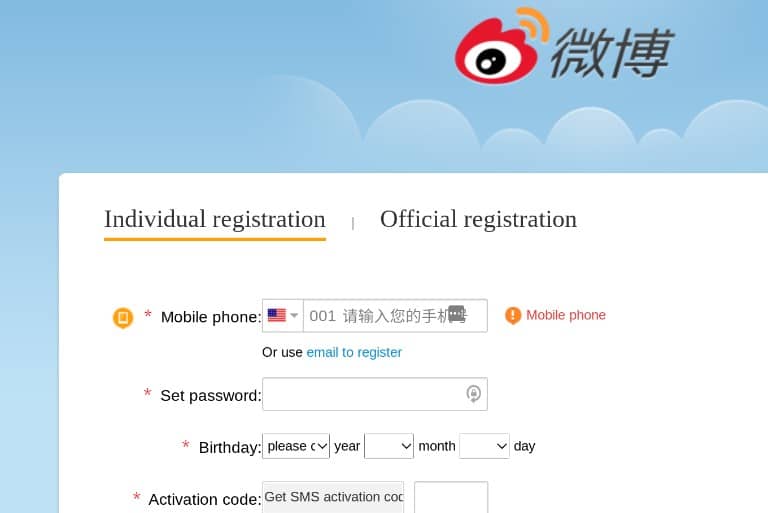
Sina Weibo, simply called Weibo in China, is a microblogging social network.
Similar to Twitter, you can find journalists, celebrities, and other public figures on this social networking website.
In addition to publishing text-based updates (up to 2,000 characters), users can share music, videos, and images. They can also comment, follow, private message, search, and use @Usernames to tag others.
And, like Instagram, users can post images (9 max per post) and create Stories.
Quick Snapshot
- Headquarters: Shanghai, China
- Founded: 2009
- Monthly Active Users: 582 Million
Standout Features
- Weibo Polls show up in users’ timelines like a regular post, and are a great way to engage with and learn about your audience.
- Businesses can claim their own hashtag, which can be used to increase brand awareness.
- Weibo Fit tracks calories, walking distance, and other health data.
Who Should Use Sina Weibo?
If your brand can benefit from showing up in the larger social conversation of Chinese web users, then this could be a good fit.
Who Shouldn’t Use Sina Weibo?
Foreign companies pay up to $2,000 USD registering for an official account. Probably not worth it if you’re not sure if Weibo is for you.
Final Word on Sina Weibo
Weibo offers a number of ways to reach your audience, whether that’s through advertising, content marketing, or via influencers.
10. QZone

With QZone, a bonded service to QQ, users share photos, watch videos, listen to music, keep diaries, play online games, shop, date, and blog.
Think of it as a mix of a social networking site and blogging platform. It’s similar to Facebook, and users can like, share, and comment on posts.
They can also customize their profile backgrounds with accessories (mostly paid) and a song that plays in the background (like Myspace).
Quick Snapshot
- Headquarters: Shenzhen, China
- Founded: 2005
- Monthly Active Users: 615 Million
Standout Features
- Brands can create customized “microsites” and other interactive marketing applications that function within the platform.
- Users can have up to 1,000 QZone Albums, each with up to 10,000 photos.
- A QZone Certified Space gives businesses extra features to help them stay connected with their audience.
Who Should Use QZone?
QZone’s user base leans heavily toward youth living in the smaller, less sophisticated cities and towns of China. Brands with mass-market appeal do well with this audience.
Who Shouldn’t Use QZone?
If you’re going after university students or working professionals, then consider WeChat or Sina Weibo.
Final Word on QZone
If your audience is Chinese citizens, either in China or living and traveling abroad, this could be a great place to run a marketing campaign.
11. Reddit
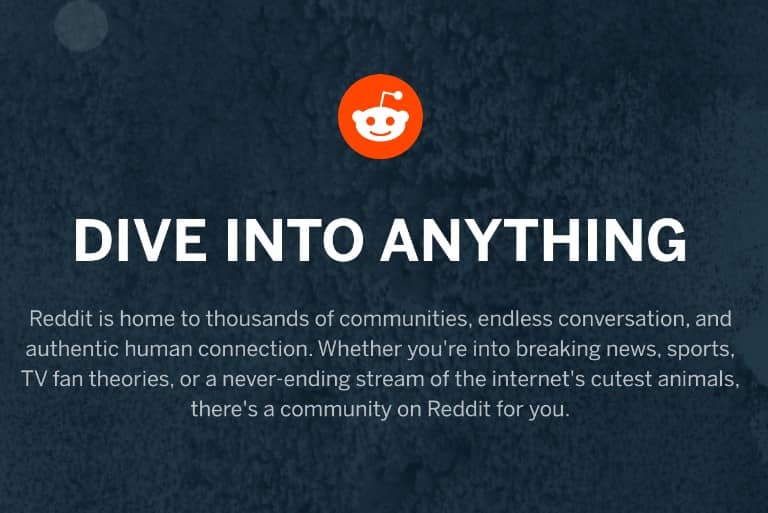
The “front page of the internet,” Reddit is a forum where users can participate in thousands of communities called “subreddits,” covering any topic imaginable.
Content is user-generated and includes written posts, discussions, photos, videos, and links to articles.
Users often pose questions to the community (similar to Quora), or just browse for random stories like you would see on StumbleUpon back in the day.
Quick Snapshot
- Headquarters: San Francisco, California, USA
- Founded: 2005
- Monthly Active Users: 850 Million
Standout Features
- Ask Me Anything (AMAs) allows users to have live conversations with well-known public figures like politicians, authors, actors, or people with interesting jobs.
- Activities on Reddit generate Karma, a point system that shows how much you participate and generates goodwill from other users.
Who Should Use Reddit?
If you want to gain insights into an audience’s thought process and communication style, then follow any subreddits they hang out in.
Who Shouldn’t Use Reddit?
“Redditors” are typically savvy internet users that bristle at overt marketing attempts and shut down anyone not observing group norms (“Reddiquette”). Ease in and add value, or just be a fly on the wall and gain intel.
Final Word on Reddit
Reddit is an awesome resource for learning about topics and people. To learn more about marketing on Reddit, check out this article.
12. Kuaishou
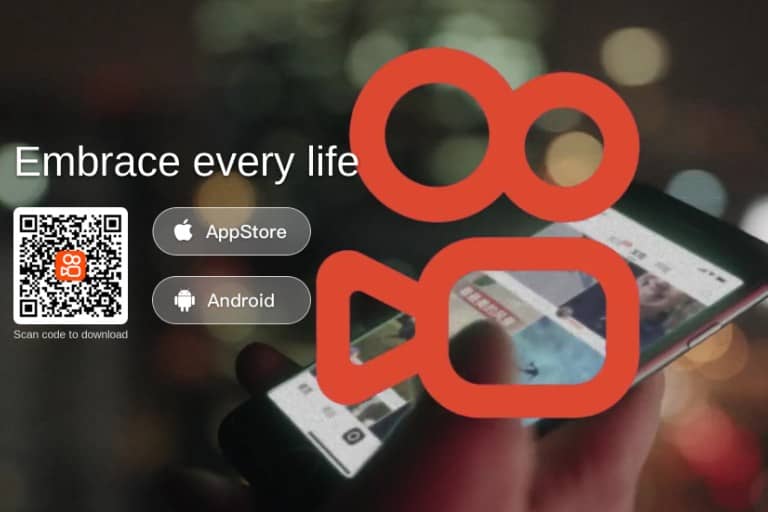
Kuaishou, called Kwai outside of China, is a short-video sharing and live-streaming app.
Users share clips of stunts and pranks and live streams of video gameplay.
Kuaishou’s algorithm is designed for inclusivity, ensuring more visibility for a wider range of user-generated content.
This has opened the way for people from China’s rural regions to share their lifeways while generating extra income, which they do by promoting their businesses or linking out to eCommerce platforms.
Quick Snapshot
- Headquarters: Beijing, China
- Founded: 2011
- Monthly Active Users: 678.2 Million
Standout Features
- Kwai’s simple, easy-to-use interface allows anyone to quickly learn and use the app.
- Live-streaming allows users to provide a variety of entertaining and educational experiences.
- Users can link out to e-commerce platforms.
Who Should Use Kuaishou?
E-commerce businesses (conversions are higher on this platform) selling to the Gen Z demographic in China’s smaller cities and rural regions.
Who Shouldn’t Use Kuaishou?
If your Chinese-speaking audience is more mature and sophisticated, you may have better luck with WeChat.
Final Word on Kuaishou
Kuaishou’s algorithm is designed to be more equitable in providing exposure. That could be an opportunity to “break in” and be seen.
13. Snapchat
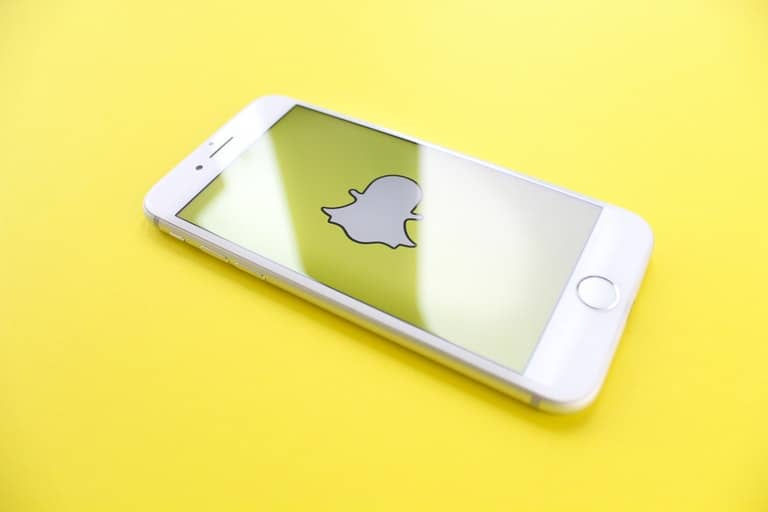
Snapchat is “a camera and messaging app that connects people with their friends,” specializing in ephemeral content — media that is only accessible for a short time (kind of like Tumblr’s ephemeral chat rooms).
A Snapchat user can share image and video messages called “snaps,” which can be modified with stickers, text, filters, and other effects.
There are also private and public stories that show the last 24 hours of a user’s content.
Quick Snapshot
- Headquarters: Santa Monica, California, USA
- Founded: 2011
- Monthly Active Users: 750 Million
Standout Features
- Creators can add links to snaps, allowing them to send viewers to external websites.
- Businesses can create a Sponsored Geofilter, a location-specific image overlay that is only available at a specific physical location that “proves” the user was there.
- The “Swipe Up to Call” and “Swipe Up to Text” features make it even easier for your audience to contact your business.
Who Should Use Snapchat?
If your audience is Millennials or Gen Z, and your brand aligns with the fun, laid-back vibe of this platform, then go for it.
Who Shouldn’t Use Snapchat?
Brands targeting older audiences won’t have as much success here.
Final Word on Snapchat
Snapchat users are always looking for interesting content. This is a great opportunity to tap into your creative side and engage younger audiences.
14. Pinterest
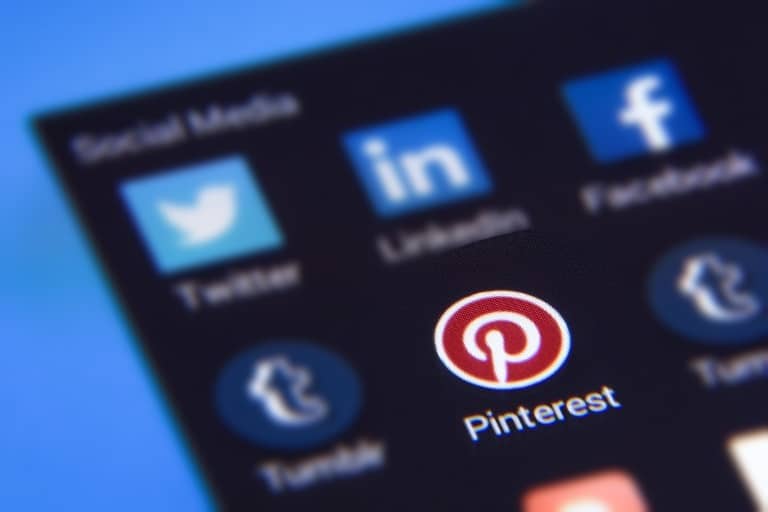
People visit Pinterest for inspiration and to find and share new ideas.
This “productivity tool for planning your dreams” has virtual boards that users (called Pinners) fill with image-based “pins,” bookmarking them for future viewing.
Pins typically link to an external website and can be repinned from one user’s board to another.
Pinners view pins from all the other users and topics they’re following on their home feed.
Quick Snapshot
- Headquarters: San Francisco, California, USA
- Founded: 2009
- Monthly Active Users: 522 Million
Standout Features
- “Lens” allows users to perform a visual search for objects they’ve captured on their phones or another mobile device.
- “Catalogs” allows brands to upload their catalog into Pinterest and turn products into Product Pins.
- “Rich Pins” come in 4 formats: Product Pins, Recipe Pins, Article pins, App pins. Each with its own dynamic function.
- “Shop the Look” pins allow Pinners to click on items and go to a product page to purchase.
Who Should Use Pinterest?
If your audience is made up of women, and especially Millennial moms, then Pinterest could be perfect for you.
Who Shouldn’t Use Pinterest?
Content must be visually amazing on this platform. If you’re not willing or able to invest in great images, then you’ll be wasting your time.
Final Word on Pinterest
Pinterest users have proven to be ready to buy. The great thing is that Pinterest gives social media marketers plenty of tools to channel that buying intent.
15. X (Formerly Twitter)

X/Twitter is a microblogging platform where users primarily share short posts called tweets (280 characters maximum) with their followers.
X/Twitter users can then like, comment on, or retweet these posts to their followers. It’s like having a massive conversation with people all over the world.
Twitter is full of businesses and brands communicating with their audiences, and “40% of Twitter users reported purchasing something after seeing it on Twitter.”
Quick Snapshot
- Headquarters: San Francisco, California, USA
- Founded: 2006
- Monthly Active Users: 368 Million
Standout Features
- Users can see and subscribe to the curated feeds, called “Lists” of people they follow.
- Twitter Polls allow users to ask their followers a question with 4 answers to choose from. This is an easy way to engage your audience and get feedback on ideas.
- Hashtags were started on Twitter, and you can create branded hashtags to generate brand awareness and drive engagement.
- Twitter spaces add another dimension to engaging with your audience.
Who Should Use Twitter?
Probably anyone, but B2B companies targeting millennial males, living in urban areas, with above-average income do well.
Who Shouldn’t Use Twitter?
Twitter is a politically charged space. Be mindful about stepping into social and political conversations, because the wrong tweet can bring quick consequences for brands and businesses.
Final Word on Twitter
Twitter is a great place to have a conversation with your audience. So show up, each day, and be ready to have a conversation with your people.
Social Media Sites for Every Type of Business
Hopefully this post has given you the big picture of the social media landscape.
The good news? You don’t need 15 social media accounts to get in front of your audience.
In fact, that would be terrible social media marketing.
You’re better off focusing on one or two social media channels where your target audience is most engaged.
Each of the social networks we covered has its pros and cons. Pick one or two that you think could be a good fit for your brand, download their app from the Apple or Android store, and follow our links to learn more.
Now is a great time to start showing up in front of your audience. Study them, engage, add value, and before you know it they’ll become loyal fans and customers.




